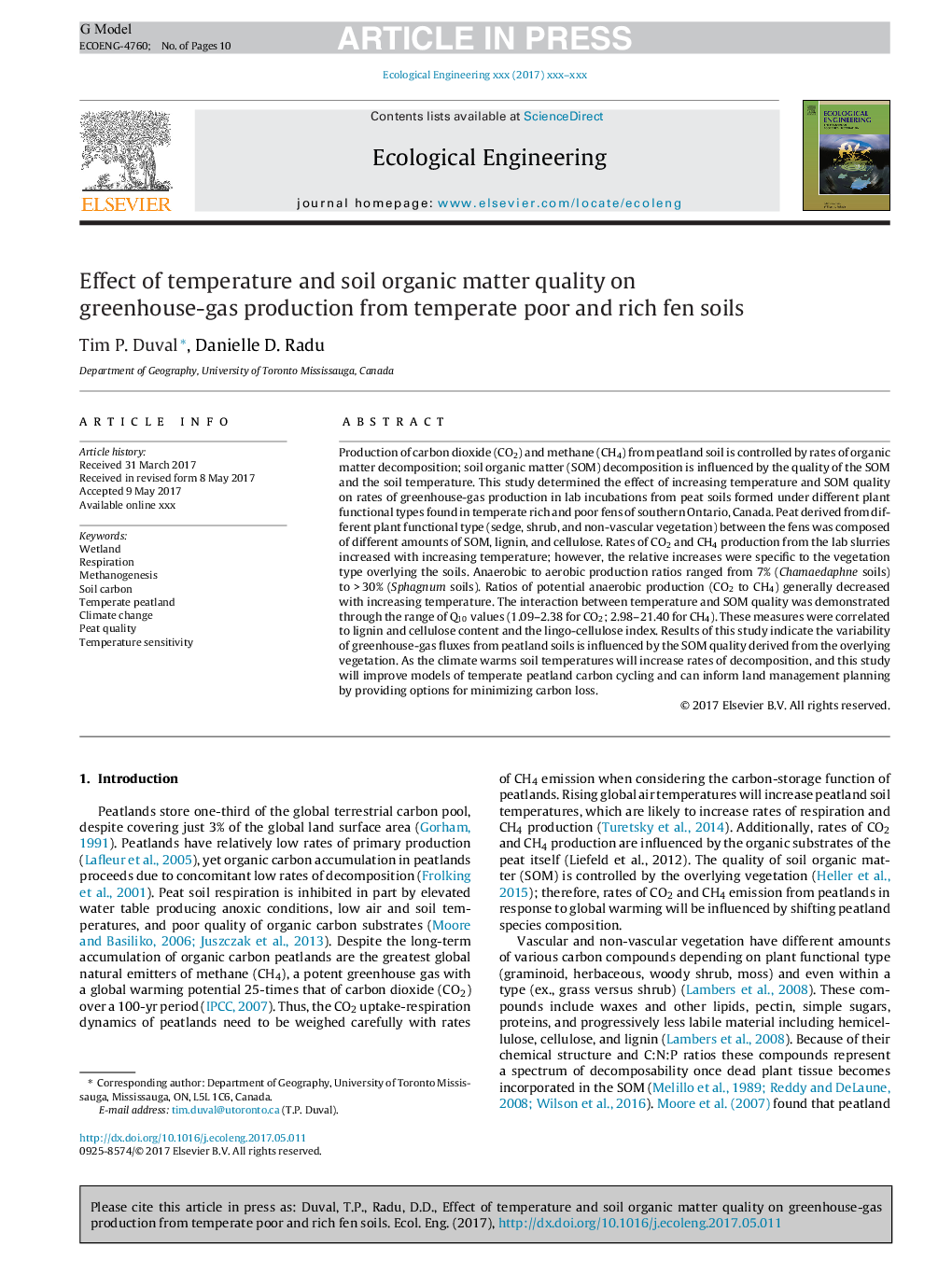ترجمه فارسی عنوان مقاله
اثر درجه حرارت و کیفیت مواد آلی خاک بر تولید گازهای گلخانه ای از خاک های ضعیف و غنی قدامی معتدل
عنوان انگلیسی
Effect of temperature and soil organic matter quality on greenhouse-gas production from temperate poor and rich fen soils
| کد مقاله | سال انتشار | تعداد صفحات مقاله انگلیسی |
|---|---|---|
| 92133 | 2018 | 10 صفحه PDF |
منبع

Publisher : Elsevier - Science Direct (الزویر - ساینس دایرکت)
Journal : Ecological Engineering, Volume 114, 15 April 2018, Pages 66-75
ترجمه کلمات کلیدی
زمین باتلاقی، تنفس، متانوژنز، کربن خاک، تالاب معتدل تغییر آب و هوا، کیفیت ذرت، حساسیت دما،
کلمات کلیدی انگلیسی
Wetland; Respiration; Methanogenesis; Soil carbon; Temperate peatland; Climate change; Peat quality; Temperature sensitivity;

